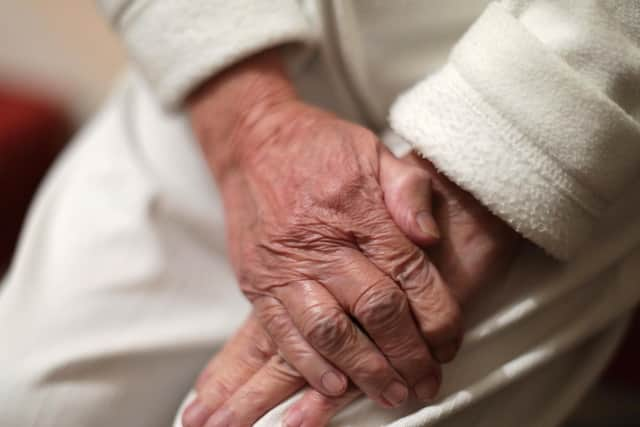Leeds is 25 weeks over a target deadline to decide whether mental health patients should be allowed their freedom
and live on Freeview channel 276
The mental health charity Mind says the lack of legal safeguards for people subject to deprivation of liberty applications constitutes a “disgraceful breach of human rights”.
Hospitals and care homes must apply to councils for permission to restrict freedom of anyone deemed to lack the mental capacity to make decisions about their care, such as those with dementia or mental health problems.
Advertisement
Hide AdAdvertisement
Hide AdThere is currently a legal maximum time limit of 21 days for applications to be processed – but experts say insufficient funding combined with huge demand has left councils across England struggling to cope.


However, Leeds City Council had 2,330 applications outstanding at the end of March 2019, the latest NHS Digital figures show, of which 1,105 (47 per cent) had been sitting in limbo for at least six months.
A further 560 cases (24 per cent) had been stuck in the system between 90 and 180 days.
In Leeds, one per cent of all the applications completed in 2018-19 resulted in the deprivation of liberty being refused – which amounted to 10 cases in total.
Advertisement
Hide AdAdvertisement
Hide AdThe average processing time for all completed applications was 200 days – more than 28 weeks – while the longest took 710 days. Only three per cent of applications were completed within the statutory 21 days.
Once an application has been approved, the person subject to it is granted legal protections, including the right to appeal the decision and have the restrictions imposed on them regularly reviewed.
But experts have raised concerns that people with live applications are being denied these protections – and in some cases may be facing restrictions which will be considered unnecessary.
Alison Cobb, specialist policy advisor at Mind, said: "It is a disgraceful breach of human rights that people are having their freedom taken away without legal safeguards while they wait a year or longer for their application to be processed.
Advertisement
Hide AdAdvertisement
Hide Ad"This can mean that they have to endure unnecessary delays to being placed in the best care setting for them, which would help to protect them from harm."
A spokesperson for Leeds City Council said the assessment of applications is "extremely complex" and safeguarding concerns are addressed on a case-by-case basis.
They added: “This process can take some time, but in line with current legislation, we do have a duty to ensure each application is properly addressed. Significantly, people who are referred for a DoLS assessment will be having their needs met within the relevant managing authorities i.e. either a hospital or a care home so they are not without the correct, assessed support which they need."
The number of applications received by councils across England has rocketed following a 2014 Supreme Court ruling lowering the threshold for what constitutes a ‘deprivation of liberty’, rising from 13,715 in 2013-14 to 240,455 last year.
Advertisement
Hide AdAdvertisement
Hide AdThere were 131,350 outstanding applications across England at the end of March – 39 per cent of them more than a year old.
The current arrangements – described as "not fit for purpose" by the Local Government Association – is set to be replaced by a simplified system later in 2020, which will shift some of the responsibility away from councils.